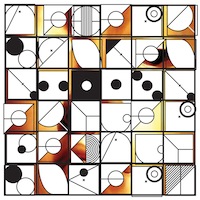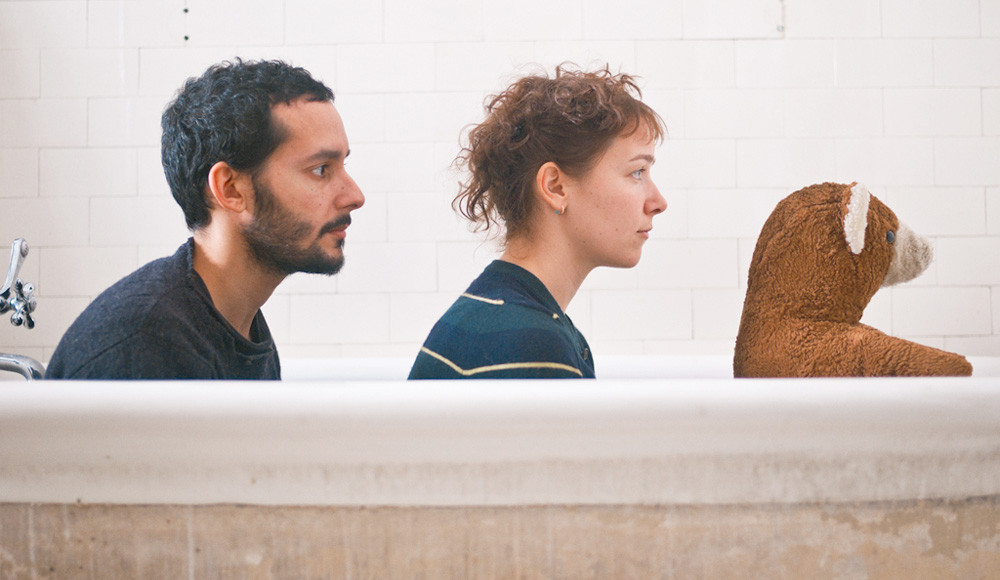 Buke & Gase: General Dome (Brassland, 1/29/13)
Buke & Gase: General Dome (Brassland, 1/29/13)
“Hiccup”
In late January, the idiosyncratic girl/guy duo Buke & Gase, comprised of Arone Dyer on baritone ukulele and Aron Sanchez on guitar-bass, released its second full-length, General Dome. The album solidifies the pair’s knack for producing distorted, askew prog-folk via instrumental inventions and experimentations. Sanchez took a moment from his busy schedule to talk to us about the band’s move from Brooklyn to upstate New York, what influenced the band’s sophomore LP, and what self-created instruments offer that conventional ones don’t.
You semi-recently moved from New York City to upstate Hudson, New York. Did this change in lifestyle affect your writing/recording approach on the new record?
We moved from a very small basement rehearsal/recording room in Brooklyn to a nice open space with wood floors and brick walls housed in an old factory building upstate, with nice, big blue skies overhead. We had a lot more freedom to make as much noise as we wanted and experiment with new ways of capturing our sound, which is an ongoing process because we use an odd, limited sonic palette. Getting that right in the recording process has been a bit tricky for us.
Other than location, what is different about this record?
As a band, being out of the city took a little getting used to. I think this record is a document of that process. We were finding new legs in a way, and trying to further define what this project is. The songwriting has tightened up a bit and is more efficient arrangement-wise. Ideas were more scrutinized than in the past, partly because we had more time to invest in them. In retrospect, that’s not necessarily beneficial to us, and we’re beginning to explore new methods as can be heard on our Function Falls EP — recorded after General Dome.
Does each new instrument or version of an instrument affect your songwriting process?
We’ve been exploring new digital-processing technologies and techniques with the instruments, and this has had a big impact on how we create and perform the music. The instruments themselves have remained basically the same for several years now; any new iterations we’ve built recently are to improve the tone of them. But yes, a consequence of playing unconventional instruments is that it pushes us into uncharted territory as far as the songwriting process. We have less control, the music itself leads the way, and we generally feel that the process of creating is less contrived.
For you, what’s the value in building your own instruments? How are “conventional” instruments missing the mark?
The instruments are just tools to allow us to play the kind of music we want to create while being a two-person band performing all the sounds live. We need instruments that have a wider sonic palette and a unique sound. It just so happens that we have the skills to make things, and we use those skills to solve that performance problem.
With everything happening during your live shows — bell anklets, “toe-bourines,” the complex system of effects pedals, etc., not to mention off-kilter time signatures — what’s most challenging or interesting about performing live?
The level of concentration is pretty high during performance. This is challenging and interesting or completely frustrating depending on the show. It’s very satisfying when we pull it off well. It’s an important part of this project right now — how to perform this amount of sound in the most efficient way possible.

